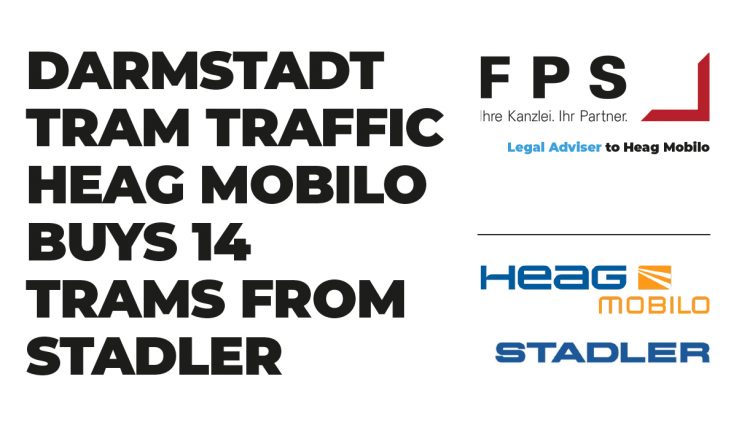Darmstadt tram traffic Heag Mobilo buys 14 trams from Stadler
HEAG mobilo, the Darmstadt tram operator, has awarded Stadler the contract for the delivery of 14 trams of the next generation of vehicles.
As a result, Stadler has acquired an initial buyer for the company’s newly developed tram model within a very short time. The contract is valued at approx. 62 million euros.
Those advising HEAG Mobilo were FPS Fritze Wicke Seelig (Frankfurt), led by Dr Annette Rosenkötter (procurement law) and Florian Wiesner (contract law), with associate: Ahdia Waezi (procurement law)
Interview with Dr Annette Rosenkötter
What complications can arise when a contract is of high value as this deal?
One challenge is the market, which is limited for technical reasons: There are not very many manufacturers who are able to produce vehicles that meet German standards and the specific requirements of the infrastructure.
For this reason, the requirements had to be formulated as precisely as possible on the one hand, but on the other hand, they had to be formulated so openly that no individual technical solution from any one supplier was excluded within the scope of the leeway.
Trams are not off-the-shelf products, due to the different infrastructure in each municipality, a tailor-made design is required in every tender; there is only limited use of standard models.
Due to the considerable effort involved in participating in the procedure for the bidders, there is a considerable risk that the losing bidder will challenge the decision.
How do you mitigate any chances of these complications from occurring?
On the one hand, the sound internal preparation of the procedure is decisive. It must be determined exactly which requirements are sufficiently marketable and realistic within the cost framework. From our point of view, it is also crucial to be able to discuss the possible need for adjustment of the service description in a phase of indicative offers. Otherwise, there is a considerable risk of having to exclude offers due to minor formal violations.
Further, the risk of complaints was reduced by an extremely transparent system of award criteria; “soft” criteria, such as the evaluation of implementation concepts, were not included. The qualitative evaluation was based on purely objective standards.
What important procurement regulations came into play in this deal?
The tender procedure fell within the scope of the “Sektorenverordnung” which implements the Utilities Directive.




